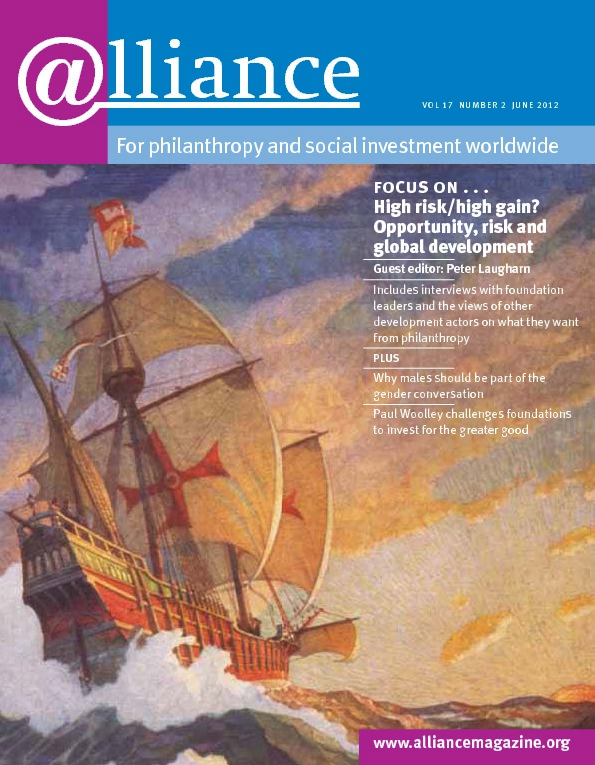In order to combat climate change, increasing interest is being shown in ‘geoengineering’ approaches. Broadly speaking, these divide into two main categories: the removal of carbon dioxide from the atmosphere, and solar radiation management to control the amount of energy the earth receives from the sun. One philanthropist interested in geoengineering is Richard Branson. The Virgin Earth Challenge has been set up to reward an activity that can take greenhouse gases out of the air while the Carbon War Room, co-founded by Branson and developed by Virgin Unite, sponsored the work of the Royal Society on the governance of solar radiation management. Alliance talked to him about his support for geoengineering approaches to climate change mitigation.
What made you interested in geoengineering?
I’d been in favour of incentivizing ways of taking greenhouse gases out of the air long before I heard of geoengineering. I don’t see these efforts as an excuse for ‘business as usual’, nor are we at Virgin interested in ‘controlling the climate’ or finding a ‘plan B’ instead of tackling climate change head on. We need to experiment with all avenues to manage climate change, and geoengineering, or re-engineering as I prefer to call it, should be a part of that experimentation.
Current CO2 concentrations are at 393 parts per million so if you support 350.org [which maintains that we need to reduce this to below 350 ppm], you need to support the sustainable removal of greenhouse gases from the atmosphere. The Virgin Earth Challenge is looking to encourage things that could sustainably do that alongside other mitigation efforts. Cutting emissions remains the absolute priority, but we have to take notice of the mess we are in – climate change may have gone too far to be resolved with lower emissions alone. If a tiny fraction of the capital that is being spent on ways of cutting emissions was spent on further researching ways of removing greenhouse gases, it could go a long way.
The potential of geoengineering approaches for climate change mitigation is huge. But what about the risks? How do you make sure your foundation does no harm, and takes only risks that are well calculated?
In absolutely everything we do, we find the best partners and work with them to find solutions. This not only minimizes risk, it also ensures we are coming up with well thought out, entrepreneurial approaches that don’t duplicate what is already out there. Neither the Carbon War Room nor the Earth Challenge claim to know something that others don’t. If you talk to the likes of the Environmental Defense Fund, Friends of the Earth or the Royal Society, they all highlight the uncertainties around each area and the need to explore things and discuss their potential responsibly, and we totally agree!
The balance of risks and benefits varies greatly depending on what area of geoengineering we are talking about. The unknowns of directly managing solar radiation budgets are huge, which is why my support in this area so far has gone into the Royal Society’s initiative to better understand the risks and to show why it’s important that any future experiments are controlled by enforceable international laws. Right now there’s nothing to stop one nation from experimenting with control of its own weather or with solar radiation control, and nobody really knows what the impact would be.
On the other hand, some of the negative emissions concepts like restoring grasslands and forests are no-brainers, even if their carbon removal potential is uncertain. Though all of the groups we have on the Virgin Earth Challenge shortlist have unknowns and hurdles, they show excellent potential. They cover air capture, biochar, bio-energy with carbon capture and storage, enhanced weathering on land, and land management. Generally these are all straightforward to monitor, govern and underwrite under existing laws and lend themselves to private sector exploration, alongside public research.
We want to encourage a much bigger conversation around negative emissions and have already helped to expand the dialogue on solar radiation management through the Carbon War Room. As with any new technology or policy, positive developments can happen only with truthful and balanced debates to form collaboration and consensus. I very much hope that anyone with an interest in this issue will want to be part of that conversation.
For more information
http://www.virgin.com/subsites/virginearth
http://www.carbonwarroom.com
http://www.virginunite.com
http://www.350.org





Comments (0)